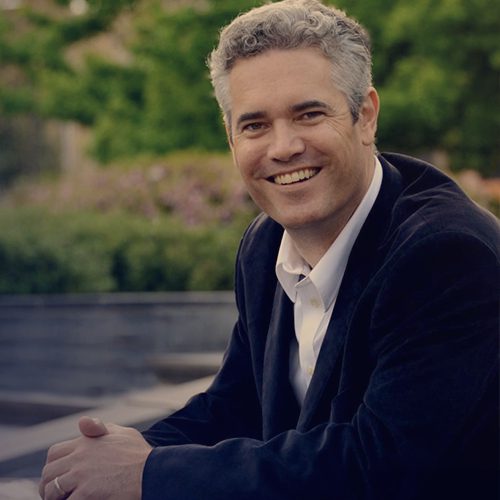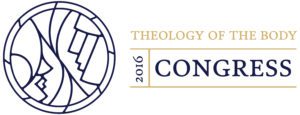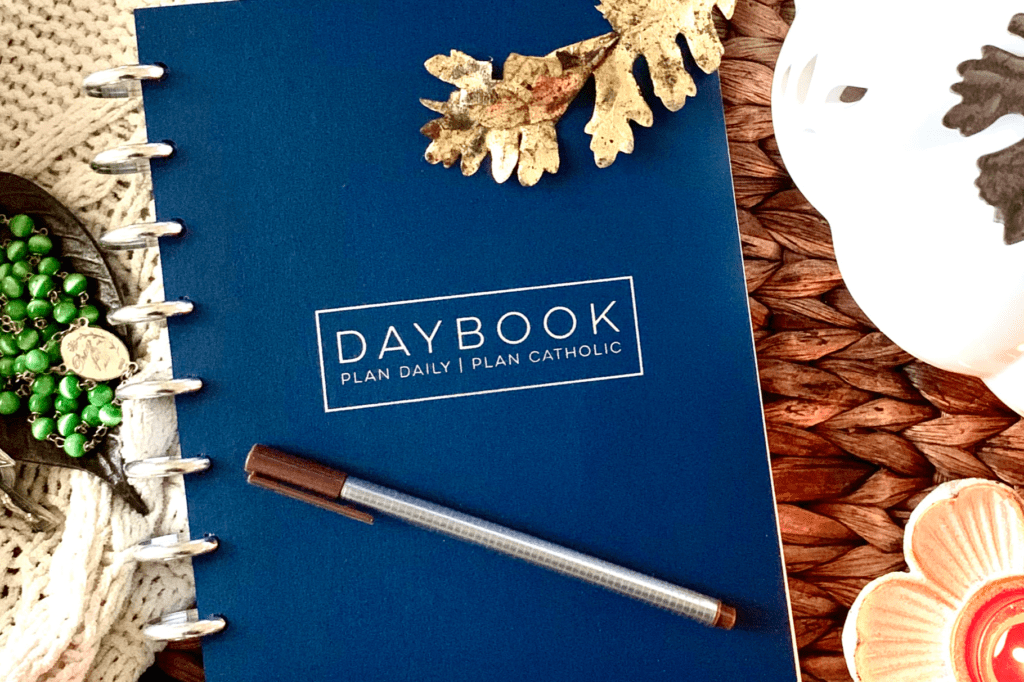Family life… what does that mean? If we are to look at society we know that the term is changing at an alarming rate. The family is being redefined and reconstructed before our very eyes. The biblical foundations for the family are slowly being stripped away and in its place is a very worldly, very confused view of what the family is and should be.
Last month I wrote about this brokenness and about how Theology of the Body can help us reclaim the sanctity of the family. I shared with you the upcoming Theology of the Body Congress that will be taking place in Ontario, California on September 23-25, 2016. I promised you amazing interviews with two of the keynote speakers of the Congress. Today I present to you the first of those interviews.
 Bill Donaghy is an” instructor, international speaker, and curriculum specialist for the Theology of the Body Institute Certification Program.” As a husband and a father of four young children he understands how crucial it is to begin to teach our children about the Theology of the Body at a young age. His talk, The Beautiful Mess of the Family, will look to “reflect on both the ideal and the real of family life.” Apart from jokes about poop and the craziness of life (we both have threenagers!), I was fortunate enough to be able to share some time with Mr. Donaghy talking about how families can incorporate TOB into their daily lives and why it is so important to do so.
Bill Donaghy is an” instructor, international speaker, and curriculum specialist for the Theology of the Body Institute Certification Program.” As a husband and a father of four young children he understands how crucial it is to begin to teach our children about the Theology of the Body at a young age. His talk, The Beautiful Mess of the Family, will look to “reflect on both the ideal and the real of family life.” Apart from jokes about poop and the craziness of life (we both have threenagers!), I was fortunate enough to be able to share some time with Mr. Donaghy talking about how families can incorporate TOB into their daily lives and why it is so important to do so.
I have chosen to present my interview to you in a question and answer format. I feel that Mr. Donaghy’s words are so important in their original form that I don’t want to paraphrase or summarize. I hope you are inspired by our conversation and that your heart will be opened to the gift that the Theology of the Body can bring to your entire family.
Q. Let’s reflect on the ideal and the real of family life. What kind of difference do you see in what society projects as the ideal family and what we know as the real family?
A. The ideal family, in the culture’s mind, is where I get what I want, when I want it, and then you get what you want when you want it… peace only comes with individualism. But the family, as we understand it, is this beautiful mess where it’s not just me doing what I want to do, but I’m at your service. I’m giving myself and receiving myself through you- mother/father, mother/son daughter, brother and sister… there is an interchange between persons which becomes this school of love, school of patience, school of wonder- all these different facets of living a human life with real face time- authentic face time. And then the beautiful mess that comes from it… the beautiful mess where we give ourselves and find ourselves.
Q. Do you think that one of the things that is lacking in society’s view of the ideal family compared as what family really constitutes is sacrifice and not being willing to sacrifice?
A. In the culture we constantly want to divorce love from suffering or love from sacrifice; when love is suffering, love is sacrifice literally. There is no way around it that if you are really going to love you are going to have that kind of death to self. It might be tiny, it might be huge; but we can’t separate it. When we do, we limit it, we don’t get real love.
Wendell Berry, the philosopher, said the definition of modern marriage is two careerists in the same bed who have their own stuff going on. Is that really authentic self-discovery or giftedness? It’s not really that.
Q. So how do you think that TOB is related to family life? Most people view TOB, if they haven’t dove into it, as it’s simply telling you to “be chaste”.
A. Theology of the Body is first and foremost a sense of the unique and unrepeated human life that is in front of me; that there is a theology to this body- to mommy, to daddy, to myself, to siblings that might be in the family. So the first foundation is wonder-gift; and also in our sexually confused age- identity- masculine and feminine.
The first move of TOB is identity of myself. And then my vocation- what do I do with myself? I am called to love. And so the vocation part then becomes as the child grows respect for others, a sense of gratitude for the gift of others, a call to reverence others and never to use them but to love them. The first thing is the sense of wonder and self-discovery and then how you treat others comes naturally from it. If you understand that the image of God is before you, you aren’t going to want to misuse them or mistreat them.
Q. How do you feel that TOB can change our marriages and then move on to change our family life? How do we incorporate it into our lives? What baby steps do we take to incorporate it into our lives?
A. At the heart of Theology of the Body is the fact that we are made for communion. John Paul reflects on the fact that man and woman are made for communion and that life flows from it. This goes against the grain of everything we are taught by present culture. A fallen world says look out number one first, what’s in it for me? So when we realize that’s not who we are, not just a me generation but we- that I have to enter into communion, then that becomes a whole different paradigm, a whole different way of waking up in the morning. Just saying thank you God for the gift of life; now let me drink in the gifts around me and give myself to them in love and service.
Communion is not just you monologuing with everyone around you but dialoguing and breaking into the sphere of this person in my family which helps me break into the sphere of the people I work with, the people on the street, the people in the stores I frequent. TOB can become this platform, this way of entering into the human community. The whole entire human community is made for community. The labels start falling off; I’m not boxing people up anymore, I’m not putting them in little compartments. The teachings teach me that Atheists, Protestants, Jews, Muslims, whatever you are, whatever the identity the Christian is projecting as well is just another human heart that I am called to know and love and hopefully I will be with in a communion of saints one day… and the teaching broadens.
Is it sex education? Yes, it’s sexual and an education in human sexuality, but education for human life…it’s the living out of our identity as men and women.
Q. How do you feel that today’s troubles correspond to the breakdown of the family? How can we see the effects of incorporating TOB in our families in the greater community?
A. We are losing our identity in this very individualist culture. At the heart of discovering our identity- of who we really are- is this call to the commitment of one for another, and when we fail to do that we fail to know ourselves and we fail to know others. We have all this energy to helping so and so to discover themselves and we are allowing teenagers to have this alphabet soup of letters now- LGBTQIA- and it goes on and on and if we simply just say go find yourself out of the context of the blueprint of the family, they are going to be screwed up for life. They will never come to the sense of self without the sense of the other.
Families who know TOB will be able to offer the culture, in a really refreshed kind of way, a rediscovery of man and woman. Dr. Peter Kreeft says, “In an age when revolution becomes tradition, our traditions become revolutionary.” When we actually say there is meaning to femininity and masculinity, if you really probe in and gaze upon it, which is now labeled as this restrictive binary code, if you actually look at it…there is this amazing dance going on that makes life happen. It can’t happen any other way.
Families who know TOB can talk to anybody and they can use the language that is more existential that comes into the ache of every heart… who am I? Why am I here? Where am I going? It equips teenagers to step into high school classrooms or college campuses and not be afraid or in some Catholic bubble but to say “I know who I am. My mom and dad taught me who I am and I want to share with you the wonder of who I am and who you are.” Can you imagine what a gift that is to the world? But kids have to marinate in this beauty that is Catholic anthropology. If they marinate in it for a solid 18 years with an open heart they will have something to say to the American culture and they will say it in a merciful way.
Q. How do parents incorporate this into everyday life? As parents with little children life can be insane and we get distracted…
A. I think, speaking from experience right now, the first move is my relationship with my wife Rebecca. If I can have a kind of recognition of her uniqueness and her giftedness and I go right to her when come home from work or come into the house- Daddy goes to Mommy and kisses Mommy and says how was your day and listens to her- that is already setting this blueprint of how people talk to each other.
If I can get down on my knees when I meet the kids and talk to them and listen to all their super excited stories of the day; if I can receive that, I am starting teach them in the body this kenosis, you empty yourself and get down to their level and enter into their stuff. Also throughout the day when you have this rollercoaster ride of emotions a parent has to establish that emotional equilibrium. Sometimes it is being the sponge that absorbs all this stuff but it’s showing the kids “here’s how you keep your cool, stuff happens, it’s alright, we don’t freak out we don’t lose it.” On the rollercoaster ride of emotions we have to be on the steady train… which can be hard depending on what has been flushed down the toilet… Mostly it’s language of the body. It’s a lot of the body language of us taking things and giving things in love.
Q. If you could have people take away one thing from TOB in regards to family life, what would that be?
A. Mercy. Literally… mercy. We have to have mercy. I have to have mercy on myself, mercy on the kids. Not be afraid to apologize when Daddy loses his temper or Mommy gets impatient. That mercy is a great lesson for everyone to learn. Pope Francis said the three most important words in the family are please, thank you and I’m sorry. That’s really good stuff. There is simplicity there which is all encased in mercy.

If you would like to have more information regarding the upcoming Theology of the Body Congress, please visit their website where you can learn more, register to attend, and find amazing links.
If you are interested in attending a 5 day course held at retreat centers near Philadelphia, PA where personal and leadership formation involves both your heart and your head being immersed in TOB while in the presence of the Blessed Sacrament, visit the Theology of the Body Institute. Here you will find ways to become a part of the “life-giving experience of the New Evangelization.”
Stay tuned for my interview with Jason Evert coming up Monday!

